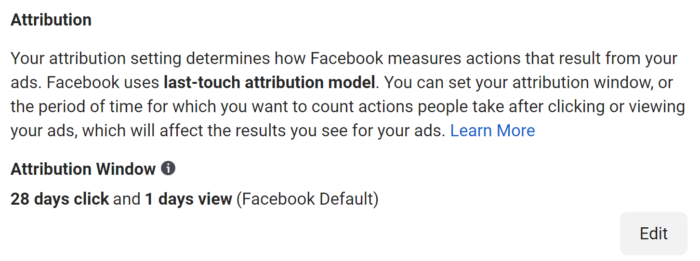Digital marketing students sometimes ask why we don’t mention political events or major issues like the antitrust lawsuit Google is facing in the United State here in News You Can Use. And that’s a fair question — those are huge topics that affect us all.
Our aim here is to help make sure you are informed about the specific developments in online marketing that may be crucial to your education and job performance as a digital marketer right now. And we especially look for stories everyone else isn’t covering. We love when readers let us know how Stukent’s news coverage tipped them off to something that gave them an edge over less-informed marketers.
We know that it’s the lesser known information that often determines whether your marketing campaigns deliver results that are mediocre or stellar.
AFTER, INC. NAMED ‘DISRUPTOR OF THE YEAR 2020’ BY THE IMA
Topic: E-commerce

Key Point: The Internet Marketing Association (IMA) chose After, Inc’s QuickReg technology over contenders nationwide as a “disruptive” development. The move didn’t get much more than a yawn from leading internet marketing publications, though — probably because QuickReg is a tool only of real interest to product manufacturers. But look closely, and you’ll see the fundamentals of marketing applied well by After, Inc.
You see, product registration provides important benefits to both the manufacturer and the consumer. Not only does registration connect the product and the buyer to the maker in case warranty issues arise or updates are announced, registration helps strengthen the seller and buyer bond and enables ongoing communication.
The problem is that many consumers seldom or never register a product. For buyers in the 18–29 years age range, the “seldom or never” tally registered 62 percent in a 2015 study by the University of Michigan. After, Inc. set about to change that.
QuickReg provides three high-powered benefits every marketer should hold close to the vest: The tool is convenient, on the spot, and gives the consumer a reason to take action. Consequently, it’s an award-winning ROI driver and a good find by the IMA.
DISCUSSION IDEA: What are the fundamentals of marketing, and why is it that simply applying them gains “disruptor” status for the smart digital marketer?
GOOGLE SEARCH AI TO USHER IN PASSAGE-BASED RANKING
Topic: SEO

Key Point: Google says AI (artificial intelligence) is quickly upping the ante on search engine results. A recent Google blog post by Prabhakar Raghavan, a Google senior vice president, said this
“With recent advancements in AI, we’re making bigger leaps forward in improvements to Google than we’ve seen over the last decade so it’s even easier for you to find just what you’re looking for.”
Among other claims, Rahhavan says the new spelling algorithm uses a “deep neural network” that beats all the spelling improvements of the past five years combined. That’s good news, seeing that one in ten queries presents a spelling issue the search engine must decipher.
Of primary interest to SEO professionals like Ann Smarty, though, is the focus on passages. “We’ve recently made a breakthrough in ranking and are now able to not just index web pages, but individual passages from the pages,” wrote Rahhavan. If that’s so, then why did Google’s public liaison for search, Danny Sullivan, insist “There’s no “index” of passages that operates separately from our index of web pages”?
Seems there’s a mystery to unravel here — but most of all a concern about how these changes to Google Search will affect website and web page ranking. Smarty does an excellent job of digging into the mire: Google Will Soon Rank “Passages.” Does It Matter?
DISCUSSION IDEA: What are other ways artificial intelligence may soon affect search engine ranking? Are we only seeing the tip of the iceberg?
IS FACEBOOK PHASING OUT THE 28-DAY ATTRIBUTION WINDOW?
Topic: Social media marketing
Key Point: It’s a significant change … with a twist. Numerous social media news sites have recently reported that Facebook is phasing out the 28-day attribution window. The default period, say reports, changed from 28 days to seven days on October 12, 2020.
Here’s the twist: The Facebook page referenced in the reports (at least in the reports where a Facebook source is mentioned) returns “Whoops, that page doesn’t exist” (also known as a 404 result), and some users are reporting there’s been no change at all.
Were all the reports inaccurate, or will Facebook follow through on the intention? Here’s a sure way to find out — at least for your account: Go to your Ad Account Setup page in your Facebook Business Suite and check the Attribution box. If it looks like the just-clipped image below, something is askew:

What’s going on? It could be that the change is rolling out first to enterprise-level advertisers. The screenshot above is from a small business account. A Social Media Today article said “The change will likely only impact advanced Facebook marketers and those operating large scale campaigns, while it will also affect automated systems which determine Facebook ad spend based on specified events.”
Why did Facebook announce this change in the first place? Social Media pundit, Penny Kelly says it’s because data restrictions due to recent tightening of privacy requirements are forcing the change.
ACTIVITY IDEA: Check your Facebook Ad account. Is the Attribution default set to 28 days or seven days?
THE BEGINNER’S LIST OF SEO RESOURCES
Topic: SEO

Key Point: This is too good not to mention. Lists with titles like “The Complete List” or “The Only List You’ll Ever Need” way too often prove to be big on promise and short on delivery. Here’s a HubSpot resource, though, that packs a modest title but a major punch.
HubSpot lists podcasts, newsletters, courses, blogs, Slack groups, and subreddits everyone serious about SEO should familiarize themselves with. You won’t be disappointed.
Here’s that link: Learning SEO? The Beginner’s List of Resources to Get Started
SUGGESTED ACTIVITY: Compare the resources you use now to the ones listed on the HubSpot list. Are there any gaps in your current go-to favorites? What should change?
43 PERCENT OF SERPS NOW GET A “PEOPLE ALSO ASKED BOX”
Topic: SEO

Key Point: According to a study using the Ahrefs Keywords Explorer, People Also Ask (PAA) boxes are becoming a standard part of the search engine results page (SERP) . The Ahrefs review of U.S. searches found that 43 percent of 147.8 million Google Search queries observed returned a People Also Ask box in the results.
Enter the search term, “How to learn SEO” in Google Search, for instance, and you’ll see a box like the following just below the paid positions at the top of the SERP:

The Ahrefs report suggests four things to keep in mind (including that PAA questions are “seemingly infinite”), then suggests a seven-step process to get your page included on the answers for one of those PAA boxes.
One question remains, though: Is it worth it? Do searchers actually use the PAA boxes and click through on the suggestions made? To find out, read the article. It’s a good one.
SUGGESTED ACTIVITY: Find PAA boxes for typical questions in your niche. Does your website answer any of those questions now? Is your site a candidate for a PAA mention?
GOOGLE’S NEW JOURNALIST STUDIO IS A GOLD MINE FOR MARKETERS
Topic: Content marketing

Key Point: If you think Google’s new Journalist Studio is only for “journalists” — good. That means there’s a zillion other marketers thinking the same way. That gives the better-informed person an open door to harvest the benefits while others take a pass.
Writing for the Impact Blog, Nicole Letendre says Journalist Studio “holds massive potential for marketers,” and we think she’s right.
All users have ready access to The Common Knowledge Project (it draws from billions of data points), the open knowledge repository known as Data Commons (now accessible via Google Search), DataSet Search, Fact Check Explorer, and other features.
Note that some of the tools are locked down. You’ll need to get past the gatekeeper, for instance, if you want total access to the full artificial intelligence power of the platform. The Pinpoint feature is permission-based. You’ll need to identify yourself, describe what you do and who you work for, then ask for permission to access a treasure trove of documents, images, email archives, and more.
You can create tiled maps, set up your own VPN, make data GIFs, and even more. You’ll be amazed at the options available to those smart enough to brush off the “journalist” tag and go take a look. The only way to get a personal feel for the possibilities of Journalist Studio is to go visit and explore. Here’s where to begin: The Journalist Studio.
INTRODUCING THE NEW GOOGLE ANALYTICS
Topic: Analytics
Key Point: You may have noticed references to artificial intelligence (AI) recently — both in this issue of News You Can Use and elsewhere. That’s because AI is a game-changing development in the world of digital marketing. (Come to think of it, AI is a prime example of why Stukent digital marketing products for education are miles ahead of other methods. Our simulations and digital textbooks are updated regularly to reflect changes in the way digital marketers actually work and the tools available to them.)
AI is the major component in the “New Google Analytics” (also known as “Google Analytics 4”). You may wonder what all the fanfare is about. After all, Google incorporated machine learning into the flagship analytics tool years ago. AI isn’t a part of Google Analytics now, though. AI is at the core. That means deeper insights, better integration with Google Ads, improved predictive capabilities, and much more.
Google Analytics 4 also helps marketers prepare for the demise of third-party cookies. Here’s the word from the Google blog:
Because the technology landscape continues to evolve, the new Analytics is designed to adapt to a future with or without cookies or identifiers. It uses a flexible approach to measurement, and in the future, will include modeling to fill in the gaps where the data may be incomplete. This means that you can rely on Google Analytics to help you measure your marketing results and meet customer needs now as you navigate the recovery and as you face uncertainty in the future.
The new Google Analytics is available right now. It’s the default program for all new properties added to your account. That doesn’t mean you should rush to replace the old Google Analytics on existing properties, however. Best practice is to create Google 4 properties alongside the old ones.
ALSO SEE: Introduction to Google Analytics 4
TOP 5 DIGITAL MARKETING PREDICTIONS FOR 2021

Topic: Internet Marketing
Key Point: Maybe it’s because most of the world wishes 2020 would never have happened, or maybe it’s because AI has us running ahead of the curve — but the predictions normally reserved for the new year are already underway.
Given the claim that “average conversion rates increased 159 percent during COVID-19 as consumers turn to digital channels for product research and consideration,” though, and the indisputable fact that 2020 hasn’t been a typical year for marketers … we believe this Martech Insights report could be helpful for the digital marketing teams that have already launched their 2020 holiday campaigns and are now focusing on the future.
At a minimum, the predictions here can fire up a lively discussion: Top Five 2021 Digital Marketing Predictions.
WILL BLACK FRIDAY EVEN HAPPEN THIS YEAR?
Surprisingly, we’ve seen very little in the news about the 2020 shopping season — traditionally launched on that iconic day known as “Black Friday.” Last month’s News You Can Use covered the switch Home Depot and other retailers announced for this shopping season: Black Friday won’t be one day, it’ll roll out over a month or more. Few stores want to see a crowd of people outside the door during this COVID-induced social distancing era.
How about sales, though? Will 2020 be the worst holiday shopping season ever … or will it be the best? Well, according to the annual holiday retail sales forecast by Deloitte, this year’s consumer spending will be “heavily bifurcated.”
What? That doesn’t help? Here’s the word from Deloitte vice chairman, Rod Sides:
This year, one of two holiday scenarios will play out. Regardless of the scenario, however, the consumer’s focus on health, financial concerns and safety will result in a shift in the way they spend their holiday budget. For retailers, this holiday season will continue to push the boundaries on the importance of online, convenience, the role of the store, and the criticalness of safe and speedy fulfillment.
And here are the numbers Deloitte believes likely
- Total holiday retail sales will be up as much as 1.5 percent over last year
- E-commerce sales will be up as much as 35 percent over last year
According to Adobe, this year’s online sales could reach $200 billion — a significant leap from the $138.65 billion tallied in 2019.
The bottom line for digital marketers:
Yes, the world is different now. Many people are under a financial crunch, some have even lost their jobs. But digital marketers are in demand now more than ever. You may need to work from home. You may need to make adjustments to the normal flow of business. You may even need to learn new tools and take on new responsibilities.
Now isn’t the time to slack. It’s time to dig in deeper than ever before and face the facts: The world has changed. You must change too.
BONUS INFO
Zoom launches event platform, ability to integrate apps into calls
Forrester: AI, automation will shrink ad agencies in 2021
Getting Started with Google Data Studio
How do you create a compelling digital proposition for 2021 after such an uncertain 2020?






